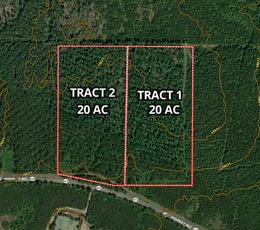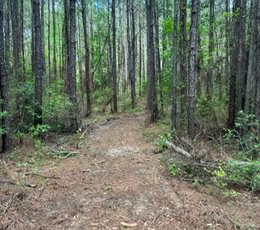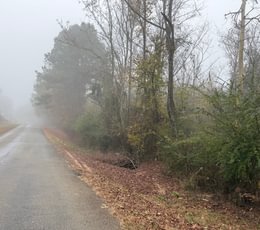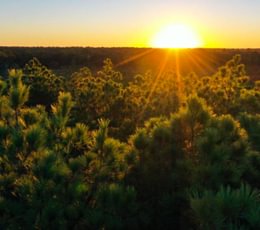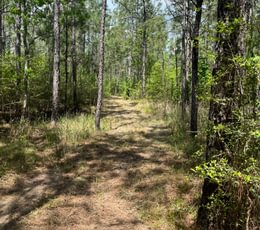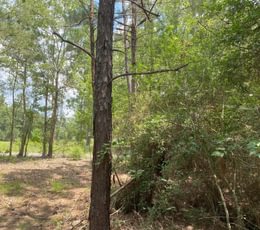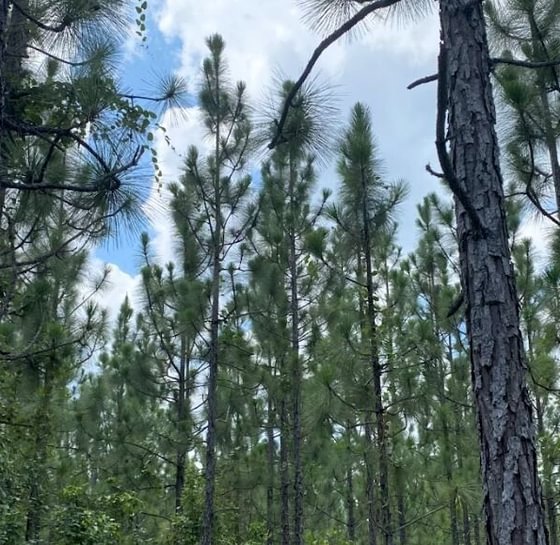
The Pelican State
Louisiana Land for Sale
Louisiana, known as "The Pelican State," is a place where rich cultural traditions meet the lush beauty of the Deep South. With its expansive wetlands, vibrant cities, and deep-rooted Creole and Cajun heritage, Louisiana offers a unique blend of natural splendor and cultural vibrancy. The state is characterized by its warm, welcoming communities, a love for music and food, and a diverse economy that continues to attract new residents and businesses. Whether you’re drawn to its lively festivals, the endless opportunities for outdoor adventure, or the state’s storied history, Louisiana provides a high quality of life in a setting that is both dynamic and deeply rooted in tradition.
Lay of the Land
Louisiana’s landscape is as diverse as it is captivating, ranging from the vast, marshy wetlands of the southern coast to the rolling pine forests of the north. The state’s iconic bayous, swamps, and rivers create a unique environment that is home to a wide variety of wildlife and offers numerous opportunities for fishing, boating, and exploring. The Mississippi River, one of the most significant waterways in the United States, flows through Louisiana, shaping both the geography and the culture of the region.
The southern part of the state, particularly the areas around New Orleans and Baton Rouge, is known for its low-lying wetlands, cypress swamps, and coastal marshes. These areas are not only ecologically important but also culturally significant, with many of Louisiana’s most famous culinary traditions, such as crawfish boils and seafood gumbo, originating from the bountiful waters of the Gulf Coast. In contrast, northern Louisiana is characterized by its rolling hills, dense forests, and agricultural lands, offering a different yet equally compelling natural beauty.
Key Attractions in Louisiana
Louisiana is home to a variety of attractions that showcase both its natural beauty and cultural significance. New Orleans, the state’s largest city, is famous for its vibrant music scene, historic French Quarter, and world-renowned cuisine. The city’s annual Mardi Gras celebration is one of the most famous festivals in the world, drawing visitors from across the globe to experience the lively parades, music, and culinary delights.
Baton Rouge, the state capital, offers a mix of history, culture, and outdoor activities, with attractions like the Old State Capitol, the LSU Rural Life Museum, and the beautiful Riverfront. Lafayette, often considered the heart of Cajun Country, is known for its lively zydeco music, authentic Cajun food, and rich cultural traditions.
For those interested in history, the plantations along the Mississippi River provide a glimpse into Louisiana’s antebellum past, with tours that explore the architecture, history, and impact of the region’s agricultural economy. The Atchafalaya Basin, the largest wetland and swamp in the United States, offers a unique opportunity to explore Louisiana’s natural beauty, with guided boat tours, fishing, and wildlife viewing.
The Oil and Gas Industry
Louisiana’s economy has long been influenced by the oil and gas industry, with the state being one of the leading producers of crude oil and natural gas in the United States. The industry has played a significant role in shaping the state’s economy, providing jobs and contributing to the development of infrastructure and communities. Offshore drilling in the Gulf of Mexico and the numerous refineries along the coast are central to the state’s economic landscape.
In addition to oil and gas, Louisiana is increasingly embracing renewable energy sources, such as solar and wind, to diversify its energy portfolio and address environmental concerns. The state’s commitment to energy innovation ensures that it remains a vital player in the national energy market while also focusing on sustainability and environmental stewardship.
Louisiana Timber and Forest Products Industry
Louisiana’s timber and forest products industry is a significant contributor to the state’s economy, with vast forests covering much of the state, particularly in the northern and central regions. The state’s forests, which include a mix of pine and hardwood species, provide raw materials for a variety of products, including lumber, paper, and wood-based chemicals. Sustainable forestry practices are a priority in Louisiana, ensuring that the state’s forests remain healthy and productive for future generations. The industry not only supports thousands of jobs in rural communities but also plays a crucial role in the state’s environmental conservation efforts. Louisiana’s commitment to balancing economic development with environmental stewardship makes the timber industry a vital part of the state’s identity and economy.
Louisiana Agriculture and Farming
Agriculture and farming are central to Louisiana’s economy and cultural heritage, with the state’s fertile soil and warm climate providing ideal conditions for a diverse range of crops. Louisiana is a leading producer of sugarcane, rice, soybeans, and cotton, with these staples playing a significant role in both the state’s economy and its culinary traditions. The state’s agricultural sector also includes a thriving livestock industry, particularly in cattle and poultry.
Hunting and Fishing
Louisiana is a premier destination for hunting and fishing, offering a wide range of opportunities across its diverse landscapes. The state is known for its excellent waterfowl hunting, with the coastal marshes and wetlands providing prime habitats for ducks and geese. Louisiana’s rich delta region is a favorite among hunters, who flock to the state each season to take advantage of the abundant game.
Fishing in Louisiana is equally impressive, with the state’s bayous, rivers, and Gulf waters teeming with species like redfish, speckled trout, bass, and catfish. The state is also renowned for its offshore fishing, with deep-sea charters available for those seeking to catch tuna, marlin, and other large game fish. Whether you’re casting a line in the tranquil waters of a bayou or hunting in the heart of the Atchafalaya Basin, Louisiana offers a wealth of outdoor experiences for sportsmen and women.
Outdoor Recreation
Louisiana’s diverse landscapes offer a wide range of outdoor activities for nature lovers and adventure seekers. The state’s wetlands, rivers, and forests provide the perfect setting for kayaking, boating, hiking, and more. The Kisatchie National Forest, the only national forest in Louisiana, offers miles of trails for hiking, horseback riding, and off-roading, with scenic views of rolling hills, longleaf pine forests, and clear streams.
The state’s many wildlife refuges, including the Sabine and Delta National Wildlife Refuges, provide excellent opportunities for birdwatching, wildlife observation, and photography. For those who enjoy paddling, the state’s numerous bayous and rivers offer endless opportunities for canoeing and kayaking, with routes that take you deep into the heart of Louisiana’s wild and untamed landscapes.
Louisiana’s state parks also provide a wealth of recreational opportunities, from camping and fishing to exploring historical sites and enjoying picnics under ancient live oaks. The state’s commitment to preserving its natural beauty ensures that these outdoor opportunities remain accessible for generations to come, making Louisiana a true haven for those who love the outdoors.
Cultural Heritage
Louisiana’s cultural heritage is as rich and diverse as its landscapes. The state is renowned for its unique blend of French, Spanish, African, and Native American influences, which have shaped its music, food, and traditions. New Orleans is often considered the birthplace of jazz, and the city’s music scene continues to thrive, with live performances in clubs, on street corners, and during festivals year-round.
The state’s culinary traditions are world-famous, with dishes like gumbo, jambalaya, and beignets reflecting the diverse influences that have shaped Louisiana’s food culture. The state is also known for its vibrant festivals, including Mardi Gras, the New Orleans Jazz & Heritage Festival, and the Festival International de Louisiane in Lafayette, which celebrate everything from music and food to the arts and cultural heritage.
Louisiana’s history is deeply intertwined with its cultural identity, with historic sites, museums, and festivals that offer insights into the state’s past and present. From the architecture of the French Quarter to the Creole plantations along the Mississippi River, Louisiana provides a deeply enriching cultural experience that is uniquely its own. Whether you’re exploring its historic landmarks, enjoying its musical legacy, or savoring its culinary delights, Louisiana offers a rich tapestry of experiences that capture the essence of the Deep South.
Plainview Acres Tract 1
Rapides County, Louisiana
$100,000
± 20 Acres
Active
Listing Agent: Keith Sorrells
Plainview Acres Tract 2
Rapides County, Louisiana
$100,000
± 20 Acres
Active
Listing Agent: Keith Sorrells
Bastrop Tract
Morehouse County, Louisiana
$1,112,197
± 361.69 Acres
Contract Pending
Listing Agent: Karen Woodard
Plainview Pines Tract 2
Rapides County, Louisiana
$50,092
± 13.4 Acres
Under Contract
Listing Agent: Eric Gage

